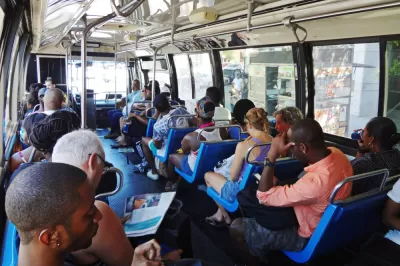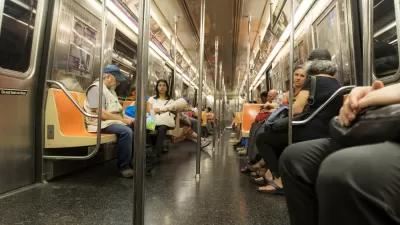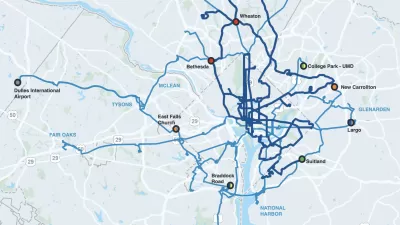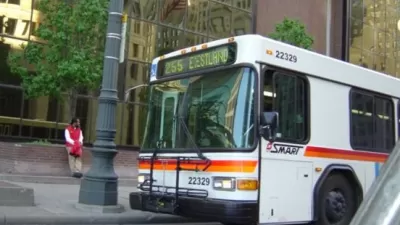As travel patterns and needs shift, transit agencies should look at service changes as a much-needed 'regular practice.'

In a guest post for TransitCenter, Laurel Paget-Seekins argues that, despite the challenges, "transit service needs to change in response to the COVID pandemic and to address underlying inequities." Although "[i]n general the status quo favors people and communities with access to political power," she writes, "this inertia was starting to give way, as agencies launched bus network redesigns to catch up on years of delayed service changes. COVID made it even more imperative to reassess service provision, as the pandemic altered travel patterns and revealed where and when service is most needed."
"Even as the pandemic (hopefully) recedes, the changes in travel needs will last for years as new patterns of remote work, deliveries, and land use take shape." As such, service changes must become "a regular practice," and "we need to find ways for agencies and communities to work through them collaboratively."
Paget-Seekins offers some suggestions for how agencies can address service changes in the future:
- "Transit advocates and agencies need to address the operating funding issue head-on and proactively."
- "Agencies need to work with community organizations, elected officials, and their governance boards to commit to a process of regular service changes for the next few years — even if there isn’t a funding crisis."
- "Agencies and community organizations also need to collaborate on the data that will inform decisions."
According to Paget-Seekins, "[i]t will be a huge disservice to riders for transit service to get stuck due to the perceived political difficulty of service changes — or for the service conversation to be driven only by fiscal emergencies and not community transportation needs."
FULL STORY: Service Changes Are Hard — and They’re Even More Necessary Now

Alabama: Trump Terminates Settlements for Black Communities Harmed By Raw Sewage
Trump deemed the landmark civil rights agreement “illegal DEI and environmental justice policy.”

Planetizen Federal Action Tracker
A weekly monitor of how Trump’s orders and actions are impacting planners and planning in America.

The 120 Year Old Tiny Home Villages That Sheltered San Francisco’s Earthquake Refugees
More than a century ago, San Francisco mobilized to house thousands of residents displaced by the 1906 earthquake. Could their strategy offer a model for the present?

In Both Crashes and Crime, Public Transportation is Far Safer than Driving
Contrary to popular assumptions, public transportation has far lower crash and crime rates than automobile travel. For safer communities, improve and encourage transit travel.

Report: Zoning Reforms Should Complement Nashville’s Ambitious Transit Plan
Without reform, restrictive zoning codes will limit the impact of the city’s planned transit expansion and could exclude some of the residents who depend on transit the most.

Judge Orders Release of Frozen IRA, IIJA Funding
The decision is a victory for environmental groups who charged that freezing funds for critical infrastructure and disaster response programs caused “real and irreparable harm” to communities.
Urban Design for Planners 1: Software Tools
This six-course series explores essential urban design concepts using open source software and equips planners with the tools they need to participate fully in the urban design process.
Planning for Universal Design
Learn the tools for implementing Universal Design in planning regulations.
Clanton & Associates, Inc.
Jessamine County Fiscal Court
Institute for Housing and Urban Development Studies (IHS)
City of Grandview
Harvard GSD Executive Education
Toledo-Lucas County Plan Commissions
Salt Lake City
NYU Wagner Graduate School of Public Service





























